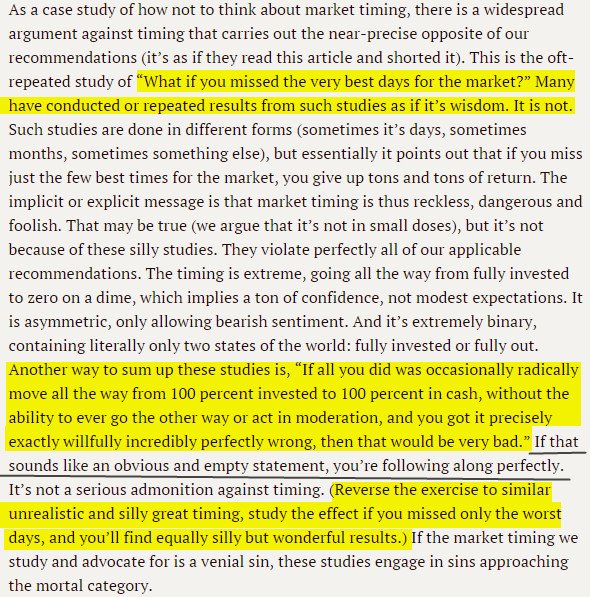- Taking a trade with NO EXIT STRATEGY that is a horror movie. It is dangerous to not have a stop loss when you enter a trade becasue if a trader thinks they bought in at a great price the price starts looking better the lower it goes, and terror of all terrors the trader adds more to the trade! It only takes one mistake letting one trade run into a huge loss and add to it to blow up an account.
- Shorting the strongest stocks in the market during a bull market is scary as they continue to go up.
- Going long a stock in a death spiral due to a business misstep or earnings decline is like riding a roller coast that generally ends up much lower when the trade is finally closed.
- “Going all in” on one trade, with this plan all it takes is one bad trade to blow up your account, those are scary odds.
- When you are losing you go from your trading plan to “plan B” “hoping” maybe even praying for a reversal. When a trade turns you religious and leads you to pray it is definitely time to get out!
- Asking for others opinions instead of following your trading plan or methodology is very scary, time for homework not tips.
- It is terrifying to watch someone fight a trend instead of follow it. The bigger they go against the trend the scarier it gets. They are trying to stand in front of an elephant walking and tell it where it should be going.
Latest Posts
rssPeter Lynch’s Rules
Find your edge and put it to work by adhering to the following rules:
- With every stock you own, keep track of its story in a logbook. Note any new developments and pay close attention to earnings. Is this a growth play, a cyclical play, or a value play? Stocks do well for a reason and do poorly for a reason. Make sure you know the reasons.
- Pay attention to facts, not forecasts.
- Ask yourself: What will I make if I’m right, and what could I lose if I’m wrong? Look for a risk-reward ratio of three to one or better.
- Before you invest, check the balance sheet to see if the company is financially sound.
- Don’t buy options, and don’t invest on margin. With options, time works against you, and if you’re on margin, a drop in the market can wipe you out.
- When several insiders are buying the company’s stock at the same time, it’s a positive.
- Average investors should be able to monitor five to ten companies at a time, but nobody is forcing you to own any of them. If you like seven, buy seven. If you like three, buy three. If you like zero, buy zero.
- Be patient. The stocks that have been most rewarding to me have made their greatest gains in the third or fourth year I owned them. A few took ten years.
- Enter early — but not too early. I often think of investing in growth companies in terms of baseball. Try to join the game in the third inning, because a company has proved itself by then. If you buy before the lineup is announced, you’re taking an unnecessary risk. There’s plenty of time (10 to 15 years in some cases) between the third and the seventh innings, which is where the 10- to 50-baggers are made. If you buy in the late innings, you may be too late.
- Don’t buy “cheap” stocks just because they’re cheap. Buy them because the fundamentals are improving.
- Buy small companies after they’ve had a chance to prove they can make a profit.
- Long shots usually backfire or become “no shots.”
- If you buy a stock for the dividend, make sure the company can comfortably afford to pay the dividend out of its earnings, even in an economic slump.
- Investigate ten companies and you’re likely to find one with bright prospects that aren’t reflected in the price. Investigate 50 and you’re likely to find 5.
Wall Street Its Mysteries Revealed Its Secrets Exposed By William C Moore 1921 – Greed
Small excerpt is from the book: ‘Wall Street. Its Mysteries Revealed: Its Secrets Exposed’ published in New York, 1921 by William C. Moore. The book contains short and to the point chapters like: ‘The crowd mind’, ‘How the public speculates’, ‘Mental suggestion’ and ‘Market advice’ to name but a few. I chose the one on ‘Greed’ as I consider it great advice and timeless wisdom. Enjoy.
Greed p. 123-124
An avaricious or keen desire for profits is one of the most prevalent causes of failure in speculation. This weakness is general among traders. They desire “just a little more ” profit. If the stock or commodity bought advances, then that’s proof to them that it will advance further and so they hang on. They usually overstay and thus miss their market. If they fail to obtain the top price and it reacts, then they assure or console themselves by the expression: “Oh, it will come back.” It may “come back” but often it does not, and instead, declines to below the purchase price and frequently results in a loss. The same observations apply to a short sale for a further anticipated decline. It is a good policy to be satisfied with a reasonable profit and be willing to leave some for the other fellow. The market is always there and other opportunities for making profits will present themselves while the greedy trader is waiting to get the last eighth. (more…)
The difference between first & second level thinking from Howard Marks

Trading well = managing your risk (how much you LOSE) Its not about making money Do the former & the latter will come

Unsuccessful Traders :Make the same Common mistakes
 1 .They like to use complex system, lots of indicators, where they are telling the same old story (price & volume). As I learned so far simple system is the best.
1 .They like to use complex system, lots of indicators, where they are telling the same old story (price & volume). As I learned so far simple system is the best.
2. They spend more time in trading, then learning, we already know successful traders spend more time improving themselves & their systems then trading, they are very selective.
3. They lost their capital, before the learning process. To become an expert it takes years of right experience.
4. They think but they don’t see, they think market will go up or down so they buy or sell, but they don’t see what the chart is trying to show them.
5. They want to control the market, which is impossible.
6.The have gambling problem.
7. They don’t know when to stop.
8. They think they know every thing, they don’t take advice.
9. When they go through bad time, they change their system, time frame & market.
10.They try to get rich over night.
11. They are very risk adverse people, so when they lose, they can’t tolerate it, they start impulse trading & end up losing more.
12. They never learn their lesson.
Wise
 * You cannot bring about prosperity by discouraging thrift.
* You cannot bring about prosperity by discouraging thrift.
* You cannot strengthen the weak by weakening the strong.
* You cannot help little men by tearing down big men.
* You cannot lift the wage earner by pulling down the wage payer.
* You cannot help the poor by destroying the rich.
* You cannot establish sound security on borrowed money.
* You cannot further the brotherhood of man by inciting class hatred.
* You cannot keep out of trouble by spending more than you earn.
* You cannot build character and courage by destroying men’s initiative and independence.
* And you cannot help men permanently by doing for them what they can and should do for themselves.
Life is not a game. Whatever you do, work at it with all your might

After & Before Hours…Homework -Hardwork is Important in Trading.

Market Timing -Must Read

